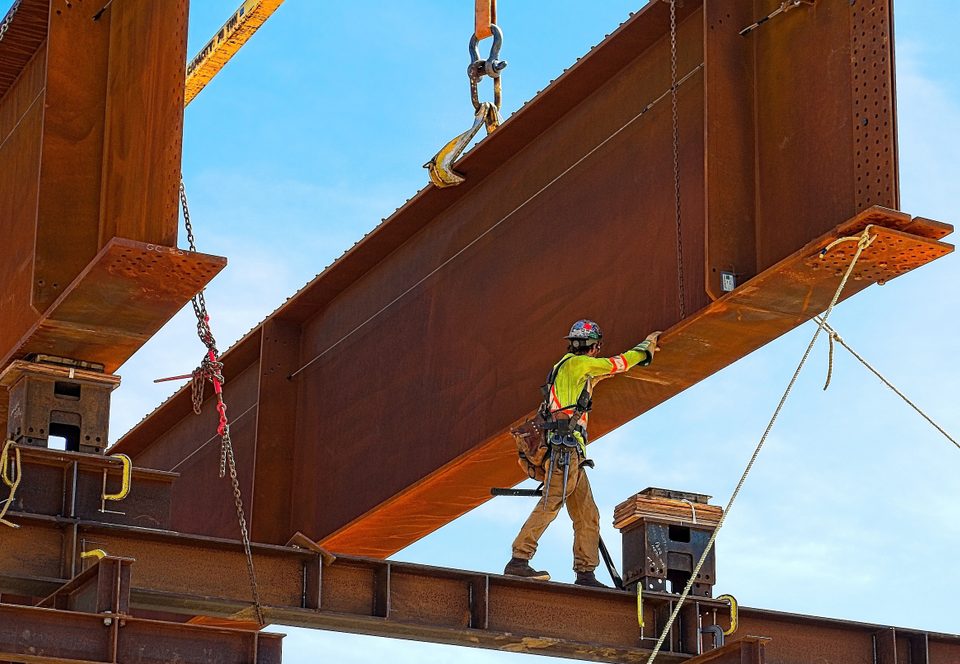What is Alloy Steel? A Basic Primer

Can You Solder Stainless Steel Products?
January 29, 2024
Can Galvanized Steel Be Painted?
February 27, 2024There are a few terms that you might hear somewhat regularly in the world of steel and other metals, and one of the most common is “alloy.” Specifically, you’ll often notice products referred to as alloy steel – what exactly does this term mean, which alloys are commonly used for steel products, and what else do you need to know in this important area?
At Wasatch Steel, we’re proud to offer a wide range of steel supply products for clients around Salt Lake City and other parts of Utah, including steel sheet, steel tubing, steel plate and many other formats. Here are some basics on what’s being referred to when you see the term alloy steel referenced, plus some of the most common steel alloys and some other important factors to be aware of.
Defining Alloy Steel
For those who are new to the world of steel and metals, allow us to provide a simple definition for alloy steel: This term refers to any type of steel that’s been combined with more than one additional element – known as an alloying element. In other words, any steel that contains more than one alloying element is classified as an alloy steel.
To be clear, steel itself is actually an alloy – it consists of iron and carbon, plus trace amounts of other elements like manganese and silicon. However, within the world of steel there are actually hundreds or even thousands of different alloys available to manufacturers depending on their needs – for example, adding additional elements can increase hardness or corrosion resistance in some cases.
Common Reasons for Using Alloy Steel
There are a number of reasons why alloys are often added to steel products. These include:
- Improving strength and hardness: In many cases, adding other elements to steel can improve its strength and hardness. For instance, chromium is commonly used in this manner.
- Resistance to wear and tear: Other alloys are primarily added to increase the wear and tear resistance in specific situations. One example is manganese, which can be effective in harsh weather conditions.
- Corrosion resistance: Some alloys will improve the corrosion resistance of steel products. A good example here is nickel, which can be found in many stainless steel products.
- Improved hardenability: When we refer to hardenability, this means the ability of steel to become harder after heat treatment. Alloys like tungsten and molybdenum are commonly used here.
- Cost efficiency: Finally, in some cases alloys might be used to lower production costs or make a product more affordable – for instance, nickel can be combined with steel to create an alloy that’s less expensive than pure nickel.
Common Alloys Used
While there are too many steel alloys to list here, some of the most common used for steel products include:
- Nickel-chromium-molybdenum: Also known as chrome molybdenum or chromoly, this combination of elements is known for its high tensile strength and impact resistance. It’s often used in automotive and aerospace applications, among others.
- Manganese steel: As we mentioned above, manganese is an element known for its resistance against wear and tear. It’s commonly used in railroad tracks and other heavy equipment.
- Stainless steel: Perhaps the most well-known alloy, stainless steel combines iron with chromium, nickel, or molybdenum to create a corrosion-resistant product that can be used in a wide range of applications.
- Tungsten steel: This alloy, also known as high-speed steel, is often used for cutting tools and other industrial applications due to its hardness and resistance to heat.
Regular Applications of Alloy Steel
Due to its wide-ranging benefits and versatility, alloy steel is used in a variety of industries and applications. Some common examples include:
- Automotive manufacturing: Many components in vehicles are made from alloy steel, including parts for engines, transmissions, and suspension systems.
- Construction: Alloy steel is often used in building construction due to its strength and durability. It’s commonly found in beams, pipes, and other structural elements.
- Aerospace: Alloy steel is essential in the aerospace industry, where it’s used to make critical parts for aircraft and other spacecraft.
- Toolmaking: As mentioned above, some alloy steels are specifically designed for toolmaking due to their hardness and resistance to wear.
As you can see, there’s a lot more to learn about alloy steel beyond just the basics. Whether you’re in the market for steel products or simply interested in learning more about this important material, we hope you’ve found this guide helpful.
For any further questions, be sure to contact the experts at Wasatch Steel today! We’ll be happy to provide guidance and assistance on all your steel-related needs, whether you’re in SLC or any other part of Utah.



